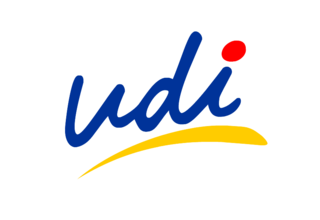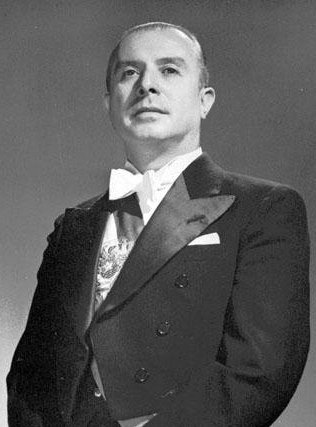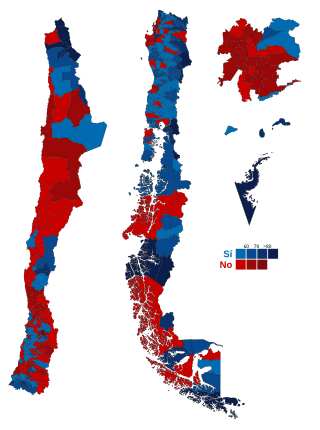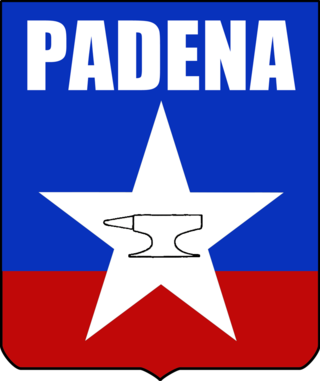
The Christian Democratic Party is a Christian democratic political party in Chile. There have been three Christian Democrat presidents in the past, Eduardo Frei Ruiz-Tagle, Patricio Aylwin, and Eduardo Frei Montalva.

The Socialist Party of Chile is a centre-left political party founded in 1933. Its historic leader was President of Chile Salvador Allende, who was deposed in a coup d'état by General Augusto Pinochet in 1973. The military junta immediately banned socialist, Marxist and other leftist political parties. Members of the Socialist party and other leftists were subject to violent suppression, including torture and murder, under the Pinochet dictatorship, and many went into exile. Twenty-seven years after the 1973 coup, Ricardo Lagos Escobar won the Presidency as the Socialist Party candidate in the 1999–2000 Chilean presidential election. Socialist Michelle Bachelet won the 2005–06 Chilean presidential election. She was the first female president of Chile and was succeeded by Sebastián Piñera in 2010. In the 2013 Chilean general election, she was again elected president, leaving office in 2018.

The Independent Democratic Union is a conservative and right-wing political party in Chile, founded in 1983. Its founder was the lawyer, politician and law professor Jaime Guzmán, a civilian allied with Augusto Pinochet. Guzmán was a senator from 1990 until his murder by communist guerrillas on April 1, 1991.

Presidential elections were held in Chile on 4 September 1970. Salvador Allende of the Popular Unity alliance won a narrow plurality in a race against independent Jorge Alessandri and Christian Democrat Radomiro Tomic, before having his victory confirmed by a contingent election after the Christian Democrats voted in favour of his candidacy.

Popular Unity was a left-wing political alliance in Chile that stood behind the successful candidacy of Salvador Allende for the 1970 Chilean presidential election.

Gabriel Enrique González Videla was a Chilean politician and lawyer who served as the 24th president of Chile from 1946 to 1952. He had previously been a member of the Chamber of Deputies from 1930 to 1941 and senator for Tarapacá and Antofagasta from 1945 to 1946. A long-time member and leader in the Radical Party, he left the party in 1971 over its support for socialist president Salvador Allende. From 1973 until his death in 1980 he became an active participant in the government of Augusto Pinochet, acting as vice president of the Council of State from 1976 onwards. As vice president of the council, he helped draft the current Chilean constitution of 1980.

Jorge Eduardo Alessandri Rodríguez was the 26th President of Chile from 1958 to 1964, and was the candidate of the Chilean right in the crucial presidential election of 1970, which he lost to Salvador Allende. He was the son of Arturo Alessandri, who was president from 1920 to 1925 and again from 1932 to 1938.

Salvador Allende was the president of Chile from 1970 until his suicide in 1973, and head of the Popular Unity government; he was a Socialist and Marxist elected to the national presidency of a liberal democracy in Latin America. In August 1973 the Chilean Senate declared the Allende administration to be "unlawful," Allende's presidency was ended by a military coup before the end of his term. During Allende's three years, Chile gradually transitioned into a socialist state.

General elections were held in Chile on 11 December 1993 to elect the President, members of the Chamber of Deputies and elected members of the Senate. Eduardo Frei Ruiz-Tagle of the Concertación alliance was elected president, and the alliance also won a majority of seats in the Chamber of Deputies and maintained its majority in the Senate. As of 2025, this is the most recent presidential election that did not result in a runoff.
Presidential elections were held in Chile on 4 September 1946. The result was a victory for Gabriel González Videla of the Radical Party, who received 40% of the popular vote and 75% of the Congressional vote.

The Popular Unitary Action Movement or MAPU was a small leftist political party in Chile. It was part of the Popular Unity coalition during the government of Salvador Allende. MAPU was repressed during the dictatorship of Augusto Pinochet. In this period, some of its most radical members formed the Movimiento Juvenil Lautaro, whose leaders were political prisoners during the dictatorship and with the return to democracy. Another faction of the former members of the party joined the social democratic Party for Democracy in 1987.

The National Party was a Chilean political party formed in 1966 by the union of the United Conservative Party, the Liberal Party and the National Action.

The Radical Party was a Chilean political party. It was formed in 1863 in Copiapó by a split in the Liberal Party. Not coincidentally, it was formed shortly after the organization of the Grand Lodge of Chile, and has maintained a close relationship with Chilean Freemasonry throughout its life. As such, it represented the anticlericalist position in Chilean politics, and was instrumental in producing the "theological reforms" in Chilean law in the early 1880s. These laws removed the cemeteries from the control of the Roman Catholic Church, established a civil registry of births and death in place of the previous recordkeeping of the church, and established a civil law of matrimony, which removed the determination of validity of marriages from the church. Prior to these laws, it was impossible for non-Catholics to contract marriage in Chile, and meant that any children they produced were illegitimate. Non-Catholics had also been barred from burial in Catholic cemeteries, which were virtually the only cemeteries in the country; instead, non-Catholics were buried in the beaches, and even on the Santa Lucia Hill in Santiago, which, in the 19th century, functioned as Santiago's dump.

The Presidential Republic is the period in the history of Chile spanning from the approval of the 1925 Constitution on 18 September 1925, under the government of Arturo Alessandri Palma, to the overthrow of the Popular Unity government headed by the President Salvador Allende on 11 September 1973. The period is concurrent with the "Inward Development" period in Chilean economic history.
The Popular Front in Chile was an electoral and political left-wing coalition from 1937 to February 1941, during the Presidential Republic Era (1924–1973). It gathered together the Radical Party, the Socialist Party, the Communist Party, the Democratic Party and the Radical Socialist Party, as well as organizations such as the Confederación de Trabajadores de Chile (CTCH) trade-union, the Mapuche movement which unified itself in the Frente Único Araucano, and the feminist Movimiento Pro-Emancipación de las Mujeres de Chile (MEMCh).
The Democratic Front of Chile was a center-right coalition in Chile between 1962 and 1964. It was composed of the United Conservative Party, the Liberal Party and the Radical Party.

A referendum on whether Augusto Pinochet, the head of a military dictatorship, should become president for eight years under resumed civilian rule was held in Chile on 5 October 1988. The "No" side won with 56% of the vote, marking the end of Pinochet's 16+1⁄2-year rule. Democratic elections were held in 1989, leading to the establishment of a new government in 1990.

Germán Picó Cañas (1905–1988) was a Chilean lawyer, businessman and politician. He was born in Santiago on May 25, 1905, and died in that same city on July 12, 1988. He was a member of the Radical Party of Chile. Among the positions he held include that of finance minister under President Gabriel González Videla.

Julio Alberto Mercado Illanes (1920–1994) was a Chilean accountant, businessman and politician. He was born in Vicuña, in the Elqui Valley area on January 14, 1920, and died in Santiago on April 23, 1994. His remains are interred in Vicuña. He was the son of Juvenal Mercado and Zunilda Illanes Olivares.

The National Democratic Party, known by its acronym PADENA, was a Chilean political party. This party was one of the last political movements linked to the figure of President Carlos Ibáñez del Campo.


















